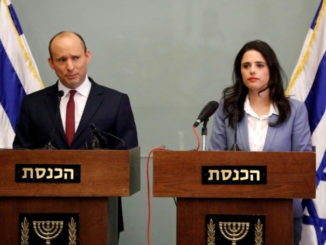
A watchdog group in Israel says it has found a network of fake social media accounts spreading information about Prime Minister Benjamin Netanyahu ahead of a national election.
Noam Rotem and Yuval Adam, two researchers from the Big Bots Project, said in a report on Monday that they have uncovered hundreds of accounts promoting Netanyahu’s Likud party and attacking his opponents.
Reports that the prime minister is using fake social media accounts haven't swayed voters. With or without them, polls show he is getting closer to a fifth term as prime minister | Analysishttps://t.co/ImwVoA7oxV
— Haaretz.com (@haaretzcom) April 2, 2019
No direct connection has been found between the network and Netanyahu or the Likud, according to the report.
Adam said his project discovered a network that included a number of real people, along with hundreds of Twitter accounts that appeared to be fake or duplicated.
Israeli watchdog says it's found social media bots disseminating messages in support of Prime Minister Netanyahu ahead of elections. https://t.co/A3nTZAwHRY
— The Associated Press (@AP) April 1, 2019
Opinion polls show Netanyahu and his main rival, Benny Gantz, a former army chief, in a close race ahead of a vote that has been overshadowed by corruption charges against the prime minister, who is seeking a fifth term in office.
The campaign has focused largely on personal attacks between the two frontrunners, with Gantz taking aim at Netanyahu’s alleged ethical lapses, and Netanyahu painting Gantz as a weak “leftist”. The prime minister’s Likud Party has also tried to portray Gantz as being mentally unstable.
Social media network employing fake users to boost Netanyahu: Israeli watchdoghttps://t.co/q0mdrooE6D pic.twitter.com/yjGKRtUxNY
— i24NEWS English (@i24NEWS_EN) April 1, 2019
Netanyahu’s son Yair, who has sparked controversy in the past with his social media activity, has frequently liked posts by the network’s accounts. The Big Bots watchdog group said it was unclear who was operating the network, which has relayed tens of thousands of tweets that were viewed more than 2.5 million times.
In response to the allegations, the Likud party denied any connection to the network and said the accounts identified by the researchers were real.
Israelis will vote in a national election on April 9.
(AJE, PC, Social Media)







